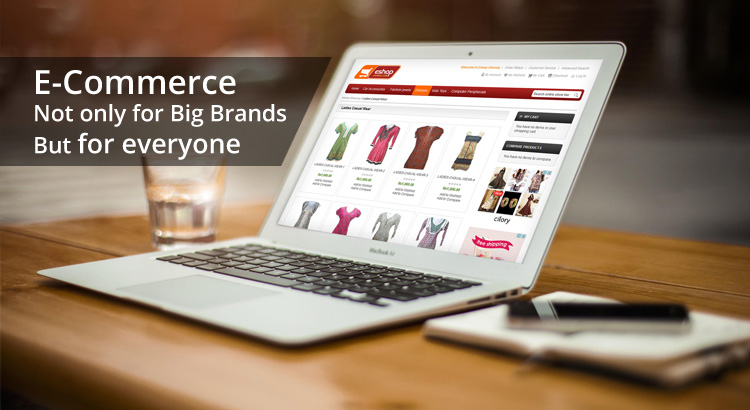With hundreds of large businesses riding the ecommerce wave during the 2000s, market domination became a reality for the early movers and digitally empowered few. This early boom has allowed such businesses to establish a firm stand in the ecommerce market; entrenching entry barriers that are too huge to be conquered by small businesses. In fact, it didn’t seem feasible for small and medium sized, or localized businesses to invest large sums of money into an e- store, with no guarantee of returns or successful establishment of online presence. In 2015, however, the landscape has changed a lot and it’s certainly a very interesting time for SME e-commerce.
The thing about ecommerce is that it is not just limited to the sale of electronics or other non-perishable goods like home products or apparel; if done right, it can even be used to successfully sell anything, from burgers to real-estate. With newer technology churning out easy to use navigation systems and making mobile shopping a simpler, quicker and effortless process, the smallest of businesses can now even sell things like cooked meals or raw vegetables. And, for those who don’t want to invest in their own ecommerce platform, there are a number of pre-existing e-commerce platforms that enable small and medium businesses to sell all types of products online, this at an extremely affordable price, and with plenty of flexibility.
The future of e-commerce definitely looks promising for small and medium businesses, and the advantages now far out-weigh the disadvantages. So, let’s take a look at how small and independent businesses can continue to selling more of their merchandise, as well as stand out from the competition and well-established large businesses who also have an online presence.
-
Go mobile
With the advent of the smartphone and more recently, the tablet, the market for selling anything online has probably doubled in the last 5 years. It is in fact, as competitive in the virtual world as it is in the real world. So, online retail space, a mobile app or even a mobile website is critical. Even if none of these are feasible, at least make a website that is mobile-friendly.
-
Video
The impact of social media and the effect it has had on business and how they operate is unprecedented, with brand names rising and falling with the voice of the customer. An active and rigorous social media presence is important if anyone is looking to maintain core customers, as well as sweep up new ones.
-
Social advertising
Although most small businesses struggle to understand the art of content delivery when it comes to connecting with their customers, social media platforms have changed the way we communicate. And there’s no reason why a small business can’t do the same, delivering content to customers and prospects via their social media channels.
The advent of ecommerce doesn’t really spell the end for brick and mortar stores and offices, it simply means that the world has evolved to a level that new customers are trying new technologies more than even before and stick with whatever makes life simpler.
